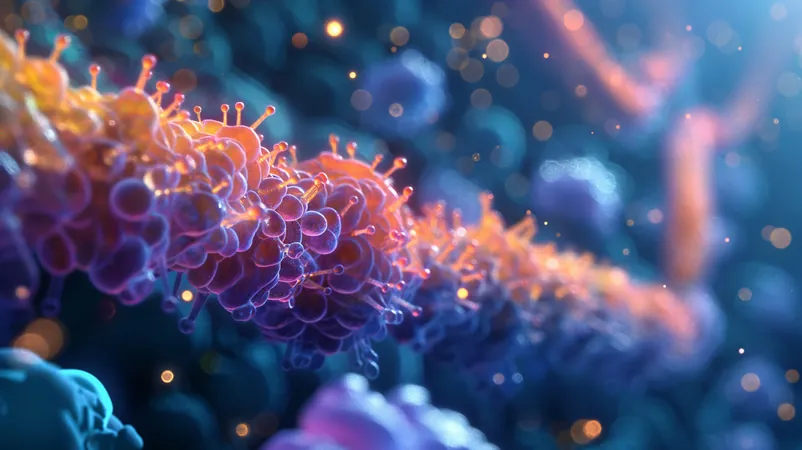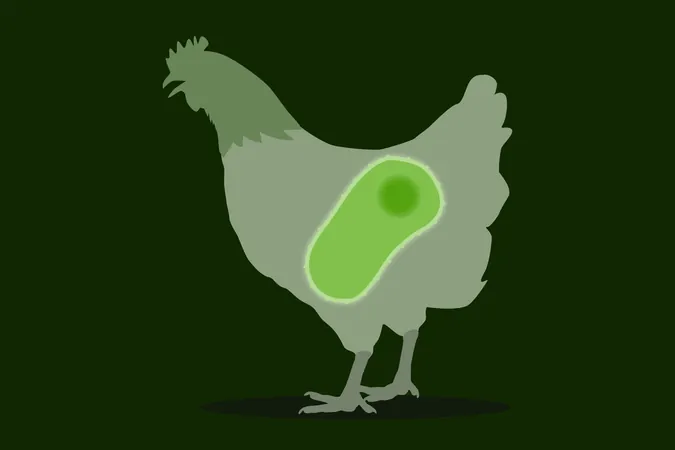
Revolutionary Insight: Targeting Lipid Storage Could Transform Treatment for Triple Negative Breast Cancer
2025-04-07
Author: Daniel
Introduction
Researchers have made a groundbreaking discovery that could reshape the fight against triple-negative breast cancer (TNBC), a notoriously aggressive form of the disease. According to a recent study published in *Immunity*, scientists have found that breaking down fat storage within cancer cells can potentially restore treatment sensitivity and significantly enhance the immune response against tumors. This exciting development may lead to effective strategies to combat resistance against anti-programmed cell death protein-1 (anti-PD-1) therapies and conventional chemotherapy.
Revolutionary Findings
Dr. Xiang Zhang, a leading researcher and director of the Lester and Sue Smith Breast Center at Baylor College of Medicine, explained the team's revelations: “Our work has shifted the focus from viewing fatty acids purely as energy sources to understanding their role in creating immunosuppressive signals that cancer cells exploit to evade our immune system.”
Breast cancer is the most common cancer among women in the United States and is the second leading cause of cancer-related deaths. TNBC accounts for about 15% of all breast cancer cases and is particularly challenging to treat due to a lack of hormone receptors, leading to poor responses to typical chemotherapeutic regimens.
Mechanisms Behind Treatment Resistance
To better understand the drivers behind treatment resistance, the research team utilized mouse models and single-cell RNA sequencing. They discovered that certain subsets of fat-laden neutrophils closely resemble tumor cells, contributing to an immunosuppressive environment. Notably, when mice consumed lower amounts of omega-6 fats, or when the production of arachidonic acid (AA) was inhibited, the immune system exhibited a stronger response, allowing tumors that were previously resistant to become sensitive to anti-PD-1 drugs and chemotherapy. In human patients, high levels of AA activity correlated with a rise in neutrophils within tumors.
Implications for Diet and Therapy
Dr. Liqun Yu, the study's first author, elaborated on the findings: “Our results indicate that tumor cells transfer lipid droplets to neighboring neutrophils, altering the neutrophils’ function from attacking the tumor to promoting its growth.”
This study underscores a pivotal connection between fat accumulation in TNBC cells and the suppression of the immune system, which complicates treatment efforts. As a potential solution, researchers suggest advising patients to adopt a diet lower in omega-6 fatty acids, paralleling general dietary recommendations to minimize red meat, high-fat foods, and sodium intake.
Future Directions
Looking ahead, Dr. Zhang and his team are exploring therapeutic approaches aimed at curtailing fatty acid build-up and blocking the immunosuppressive interactions between cancer cells and neutrophils. This research not only paves the way for more effective treatments for TNBC but also highlights the crucial role of diet and metabolism in cancer therapy—a revelation that could help many patients fight back against this formidable disease.
Conclusion
In the battle against breast cancer, particularly TNBC, every discovery counts, and this new approach marks a significant stride toward overcoming therapeutic challenges, potentially leading to better outcomes for countless patients. Stay tuned as new developments emerge in this essential area of cancer research!


 Brasil (PT)
Brasil (PT)
 Canada (EN)
Canada (EN)
 Chile (ES)
Chile (ES)
 Česko (CS)
Česko (CS)
 대한민국 (KO)
대한민국 (KO)
 España (ES)
España (ES)
 France (FR)
France (FR)
 Hong Kong (EN)
Hong Kong (EN)
 Italia (IT)
Italia (IT)
 日本 (JA)
日本 (JA)
 Magyarország (HU)
Magyarország (HU)
 Norge (NO)
Norge (NO)
 Polska (PL)
Polska (PL)
 Schweiz (DE)
Schweiz (DE)
 Singapore (EN)
Singapore (EN)
 Sverige (SV)
Sverige (SV)
 Suomi (FI)
Suomi (FI)
 Türkiye (TR)
Türkiye (TR)
 الإمارات العربية المتحدة (AR)
الإمارات العربية المتحدة (AR)